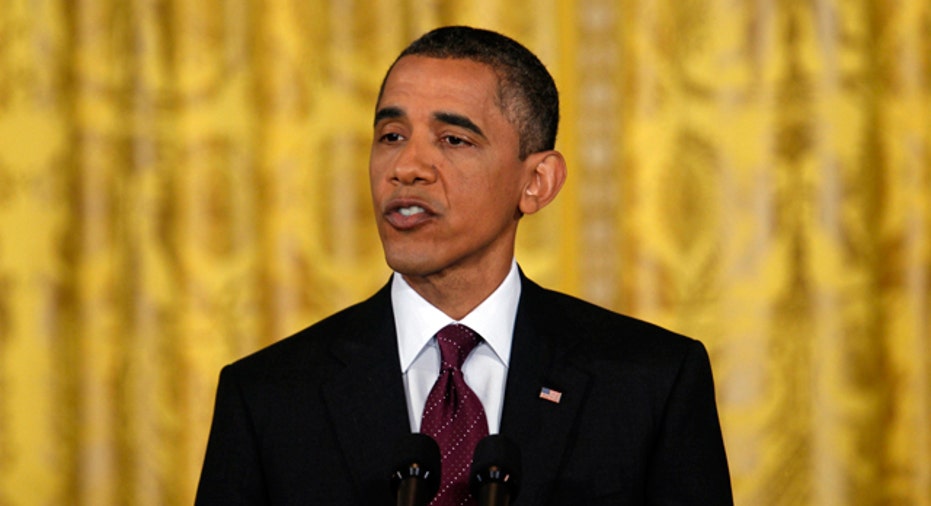Obama, Boehner Considered $1T 'Gimmick' in Debt Deal

Until their budget talks broke down Friday evening, President Obama and House Speaker John Boehner were considering including more than $1 trillion in previously-announced cuts in war spending in a new round of deficit reduction proposals, sources close to the negotiations saida move some analysts called a gimmick. Counting that $1+ trillion towards claimed deficit reduction would be taking credit for policies already in effect and would therefore be a gimmick, the Committee for a Responsible Federal Budget said in a June report warning of possible budget games in deficit talks. The step could have been part of a deal to increase the national debt ceiling that included about $3 trillion or more in proposed deficit reduction over the next decade, according to sources. It's probably more like a $2 trillion deal that we'll be doing, Dan Clifton, head of the Washington office of Strategas Research Partners, said before Boehner announced he was pulling out of talks with the President. On claiming any war spending cuts, Clifton said, The question is would those savings already have been recorded regardless of whether there's a debt ceiling deal when the Congressional Budget Office (CBO) updates its (budget figures) in late August and early September, and the answer is probably yes. Earlier this week, Democratic and Republican sources close to the talks had said negotiators for the House, Senate and White House had agreed on at least $1.5 trillion and up to $1.7 trillion in spending cuts as a down payment on future deficit reduction. In a press conference, the President told reporters his evolving deal with Boehner consisted of $1 trillion in cuts in discretionary spending, including some defense spending; $650 billion in savings in entitlement programs, and $1.2 trillion in higher tax revenues from closing loopholes, curbing deductions and reforming the tax code. In a separate press conference later, Boehner said he had agreed to $800 billion in new tax revenues. He did not discuss other deficit reduction proposals from his talks with the President. The Obama Administration has been winding down operations in Iraq and Afghanistan, which have cost more than $1 trillion since 2001. In the budget for 2012 it released in February, the Administration estimated spending on overseas contingency operations mainly the wars in Iraq and Afghanistan would decline by $1.1 trillion by 2021. It also estimated similar savings in its 2011 budget. In their version of the 2012 budget, House Republicans projected $1 trillion in lower spending on military operations in those countries. Because neither budget advanced in Congressthe Senate, controlled by Democrats, rejected both in the heat of the budget fightcurrent spending policy for Iraq and Afghanistan with previous projections for future spending remain the official numbers for the operations. In Washington budget-speak, they remain in the baseline. As a result, the projected savings in winding down the wars are up for grabs in deficit reduction for White House and Congressional budgeteers. In one sense&this is real money, Clifton said. (But) if we're talking about savings being produced, then this is not real money contributing to that $3 trillion number itself. Spokespersons for the White House and Boehner did not respond to requests for comment.You can read the CRFB whitepaper on the budget talks and possible gimmicks here.



















